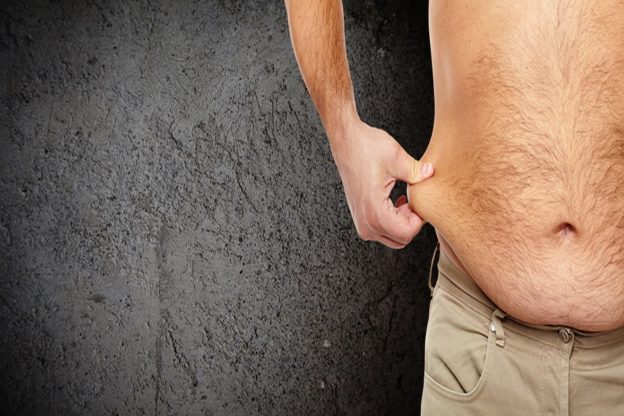By David Blyweiss, M.D., Advanced Natural Wellness
April 17, 2017
- Iodine deficiency contributes to weight gain
- Why you might have low levels of iodine
- Simple test can reveal your status
Have you been putting on extra pounds? And does that extra weight refuse to budge… no matter how little you eat or how much you exercise?
While there are many reasons you might be gaining stubborn weight, there’s one that’s often overlooked: Iodine deficiency.
That’s right. If you aren’t getting enough iodine in your diet, you could be packing on extra pounds. That’s because insufficient levels of iodine affects the way your thyroid works.
You see, your thyroid gland takes iodine and converts it to thyroid hormones. They’re called triiodothyronine (T3) and thyroxine (T4). And it’s these hormones that control the metabolic activities in your body.
Additionally, when iodine deficiency results in an underactive thyroid, it can make you look and feel bloated. As a matter of fact, hypothyroidism can add up to about 10 pounds in water weight. This fluid retention can make you look swollen and puffy.
Let me explain what’s happening…
Why You May be Iodine Insufficient
When it comes to maintaining adequate levels of iodine, you have a lot of things working against you these days.
For example, we used to get plenty of iodine in our diets from eating fruits and vegetables grown in nutrient rich soil. But for many decades now, mineral levels in crop and farmland soils have been in a freefall. Today most of our soil is depleted in iodine and other nutrients.
To combat iodine deficiency, the U.S. adopted the iodization of salt. However, we are now told how bad salt is for our hearts and blood pressure. So the use of iodized table salt has decreased dramatically in recent years.
As a result, most folks don’t get enough iodine in their diets to support thyroid function.
Even worse, we’re surrounded by chemicals that prevent our bodies from absorbing the trace amounts we do get. These compounds compete with iodine receptors. And when you’re exposed to them, they displace the iodine… your body just can’t hold onto it.
Are You Suffering From...
- Love handles and a pot belly
- Romance that isn't what it used to
- Forgetfulness and inattention
- Low (or no) strength and endurance
- A sex drive that's shifted into neutral...or worse
If so...you may have Mature Male Burnout. Click here to discover more about this unique condition and what you can do about it.
Some of these culprits include:
- The fluoride in your toothpaste, mouthwash, Teflon pans, fluorinated medications and public water supply.
- Chloride, which is also found in your public water system… and any pool that you swim in.
- Bromine – an additive found in many citrus-flavored drinks, baked goods and non-organic produce (especially strawberries).
In other words, even if your iodine intakes are adequate, it doesn’t mean your body is able to hold onto it long enough to reap the benefits.
However, you can change that.
Simple Test can Reveal Your Iodine Status
Getting your iodine status tested is simple. Just have your doctor measure how much iodine you excrete in your urine.
If your levels are low, the first thing you can do is make efforts to slash your fluoride and chloride exposure. One way to do this is by distilling water before you drink it. You can also add filters to your tap water so you don’t absorb these chemicals while bathing.
It’s also a good idea to choose non-fluoride dental products, avoid chlorine-laden pools and pass up on citrus-flavored soft drinks and foods.
Then, start eating more iodine rich foods. Some good sources of iodine include sea vegetables (like kelp and nori), wild-caught fish and unrefined sea salt. You can also supplement with 6.25 mg of iodine daily, but supplementation should occur only if you’re deficient.
And I’ll be very clear on this point. Iodine supplementation will not help you lose weight if you’re not deficient to begin with.
However, if you are diagnosed with insufficient levels, getting more iodine can help stabilize thyroid function. This, in turn, can help you quickly lose that excess water weight. And combined with a healthy diet and exercise, you’ll also find it much easier to melt away stubborn weight.
SOURCES:
Lecube A, et al. Iodine deficiency is higher in morbid obesity in comparison with late after bariatric surgery and non-obese women. Obes Surg. 2015 Jan;25(1):85-9.
Leung AM, et al. History of U.S. Iodine Fortification and Supplementation. Nutrients. 2012 Nov; 4(11): 1740–1746.







